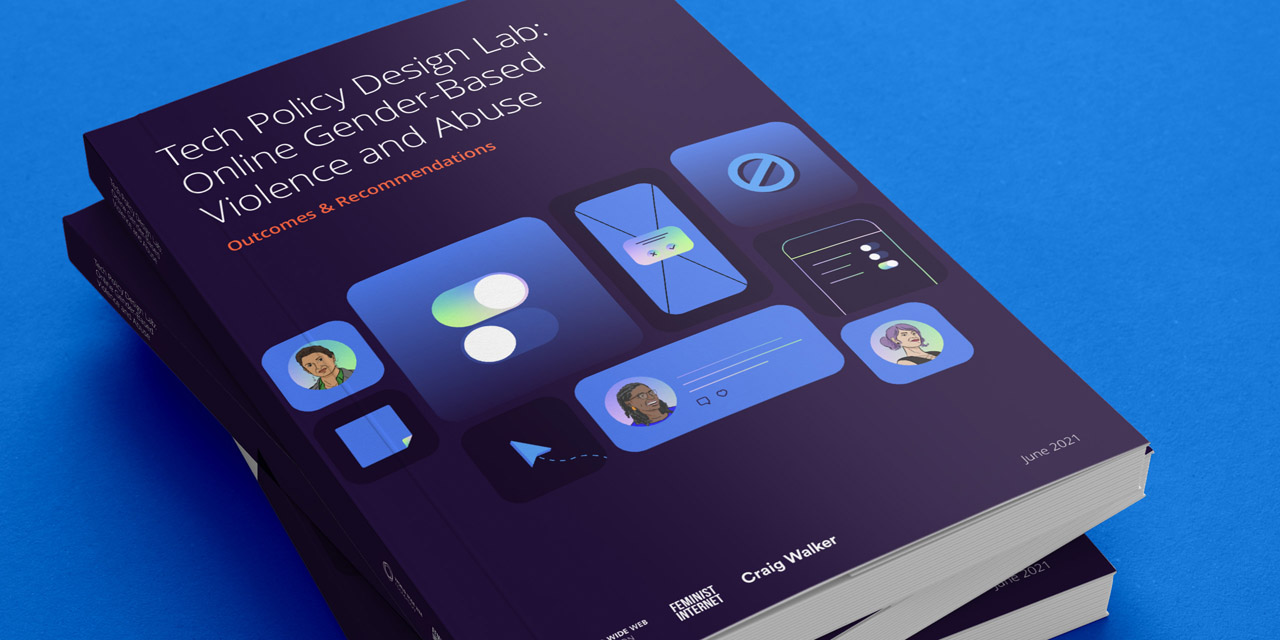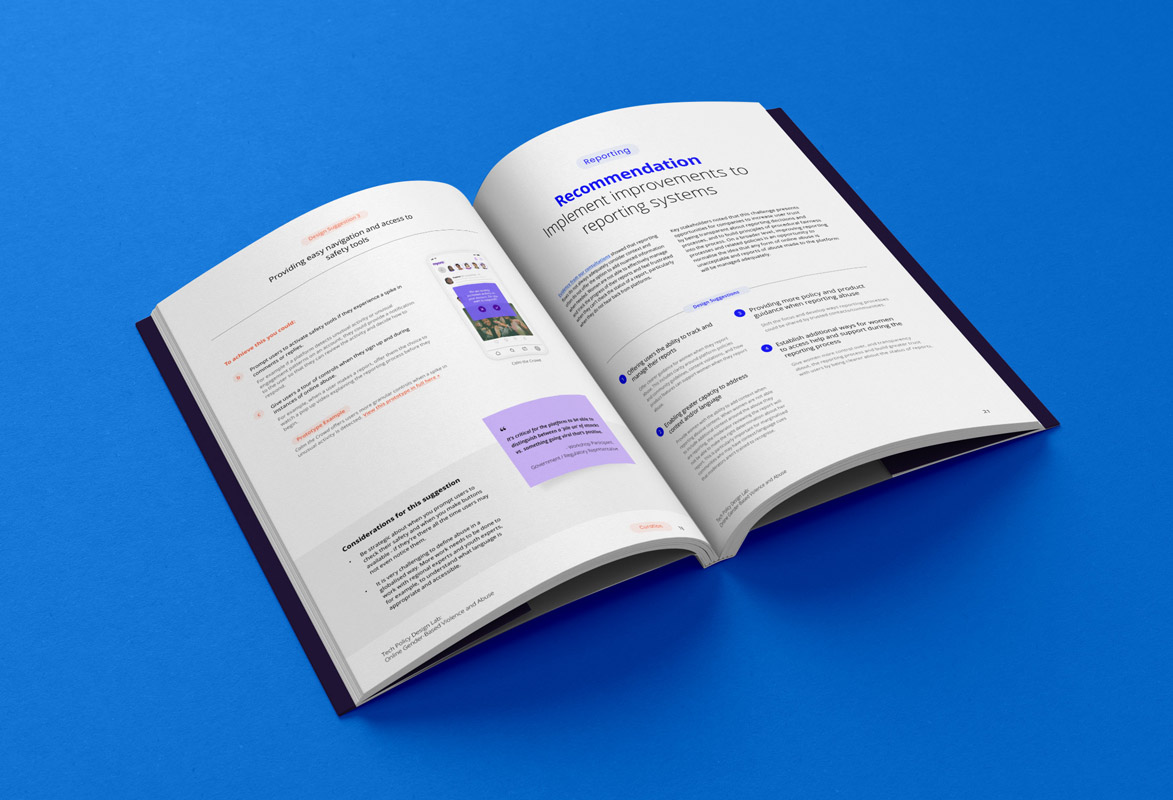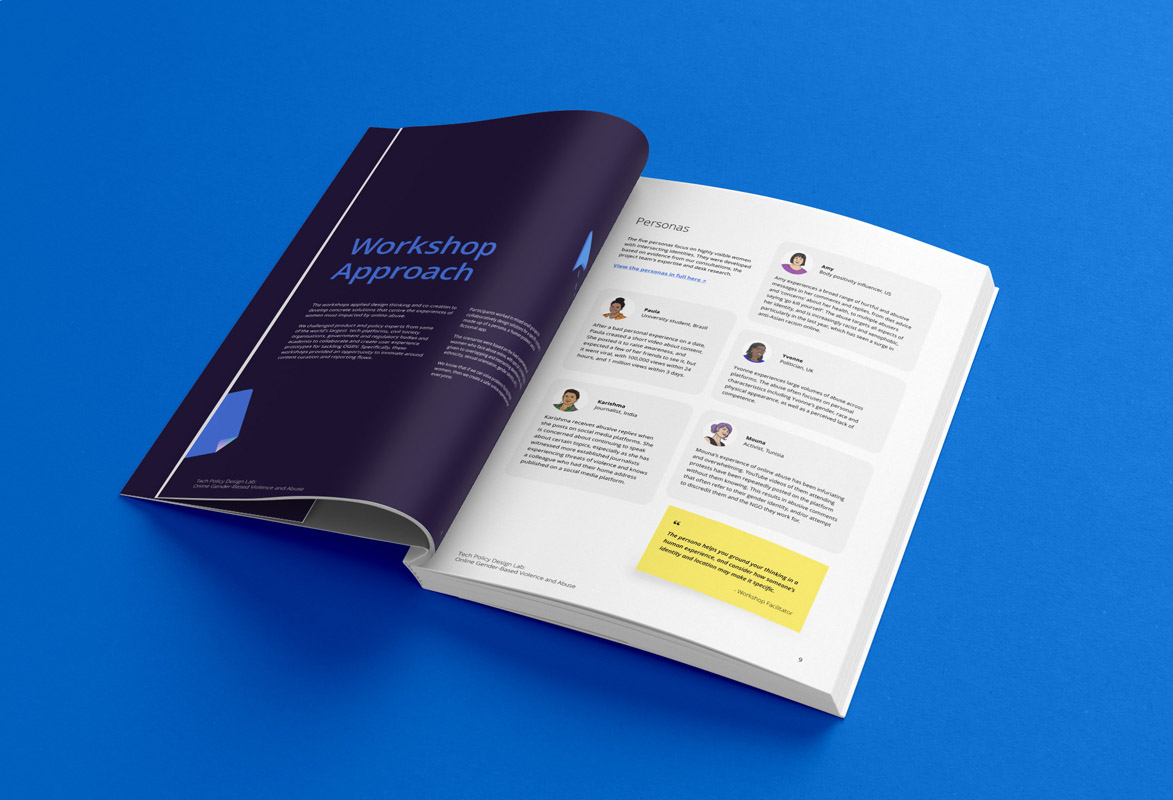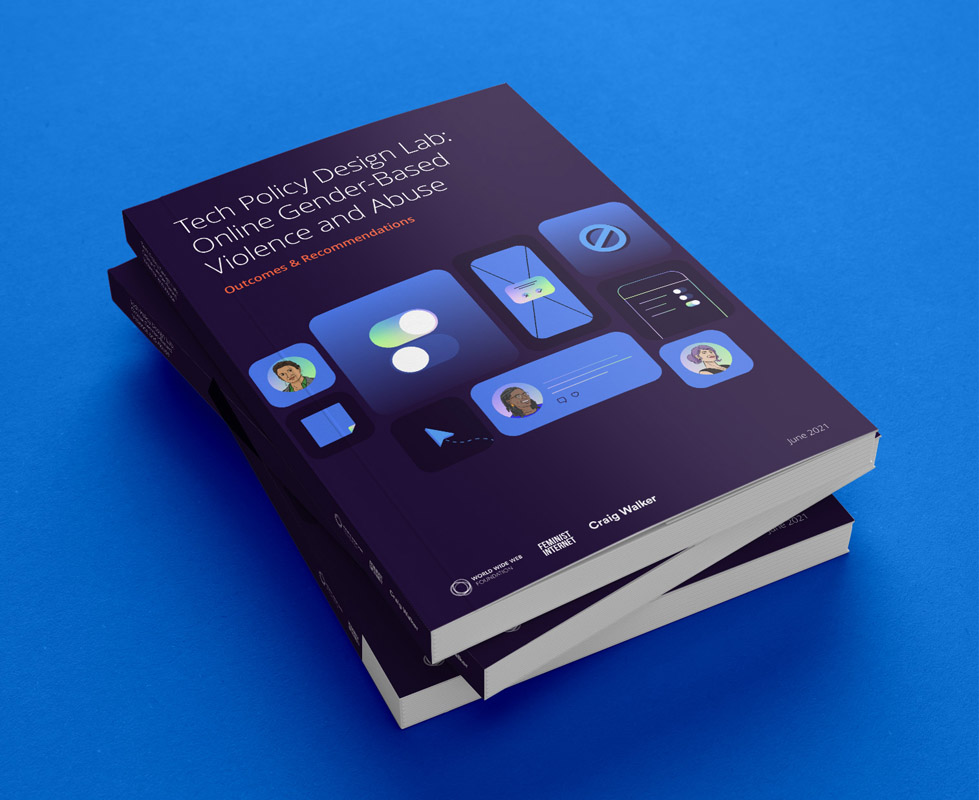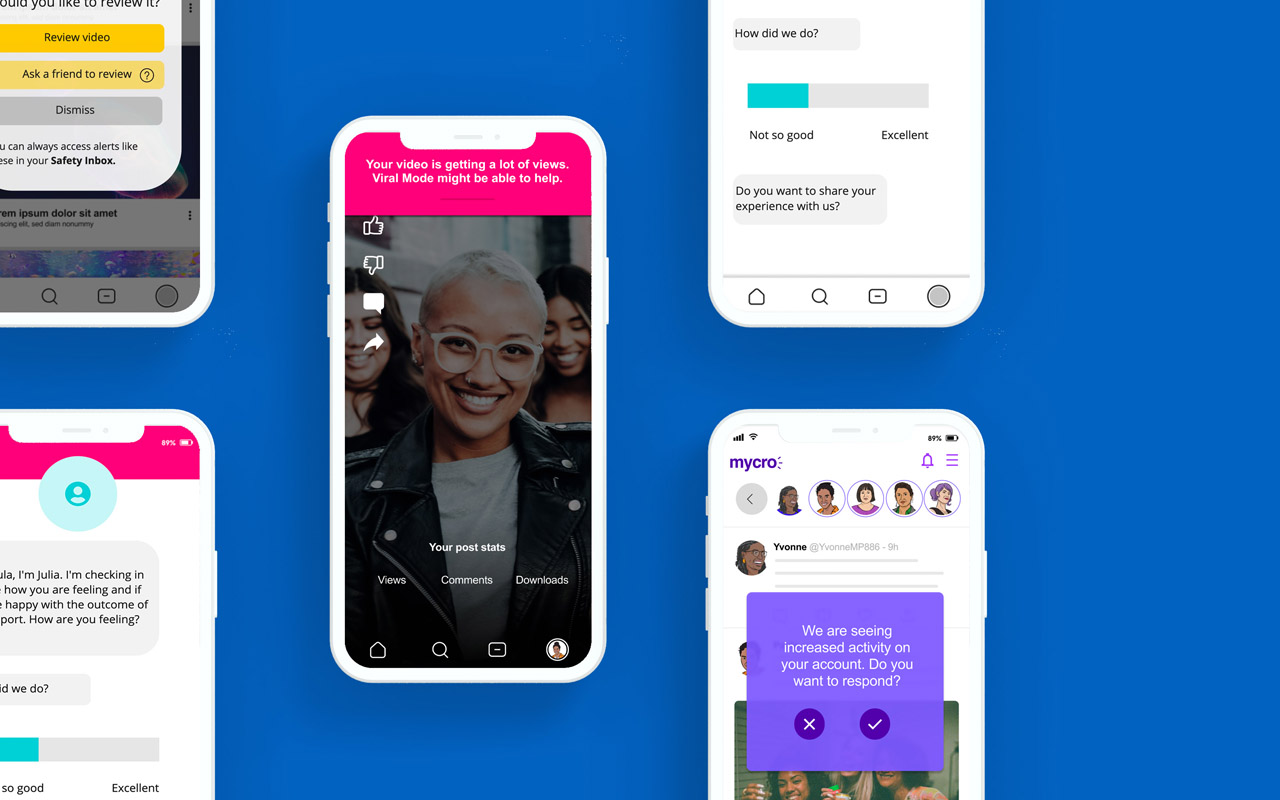The three online workshops brought together 120+ leaders from 35 countries with diverse perspectives and backgrounds to collaborate and create prototypes.
Participants worked in small, multi-stakeholder groups, each made up of representatives from tech companies, civil society organisations, regulatory bodies and academia.
Over the course of the three-hour workshops, the groups developed solutions and prototypes for content curation and reporting flows for specific scenarios. The scenarios focussed on the experiences and needs of highly visible women, such as politicians, journalists, activists and influencers.
Each scenario included a persona, a ‘human problem’ and a fictional app. The personas and human problems were developed based on the insights and findings from four multi-stakeholder consultations.
Participants in the workshops generated more than 10 prototypes, providing innovative and illustrative example solutions for creating safer online experiencers for women. These low-resolution prototypes were developed into higher resolution digital prototypes by Craig Walker.
The prototypes outline a range of innovative concepts for solving women’s experiences in curating content (posts and comments) and reporting abuse.
A micro-site and detailed report were created to share the recommendations and workshop approach in detail with the goal of providing inspiration and tangible starting points for policy and product teams within tech companies. The complete prototypes and detailed personas are available for download from the microsite.
The report outlined eight key recommendations, four each across the two themes of curation and reporting. Each recommendation is supported by illustrative prototypes, design suggestions and considerations, and acknowledgements of potential challenges.

